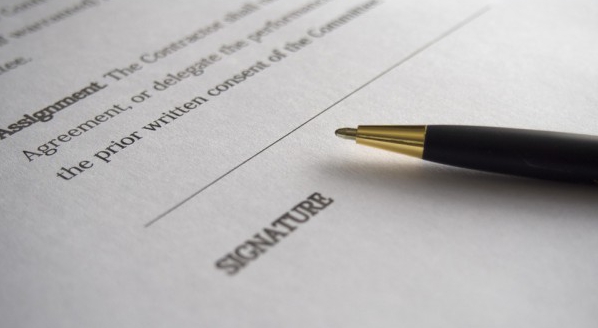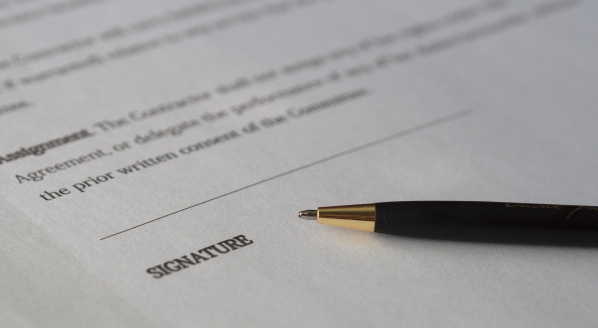Don’t get caught up in the blame game!
The steps yacht brokers can take to protect themselves from liability during contractual disputes.…
Sarah Allan, partner at Penningtons Manches Cooper, outlines the steps yacht brokers can take to protect themselves from liability during contractual disputes.
It’s with relief that we return to a new normal as countries in yachting hubs are more readily opening their borders. Meanwhile, yacht brokers have sat in the middle of a firestorm. The number of charter cancellations and contractual renegotiations due to Covid was unprecedented. Clients looked to their brokers for assistance.
Quite often, solutions were found that accommodated both parties’ interests, thereby avoiding arbitration. However, under pressure, brokers could have unintentionally exceeded their authority or acted inconsistently with their principal’s interests. Where contractual provisions might not benefit a party, a broker will want to avoid any blame, and it’s worth reflecting on how they can protect themselves in these circumstances.
To do this, one really must go back to basic principles. An agent may have the authority to act on behalf of a principal, and this is often recorded in a written contract such as a central agency agreement. Alternatively, they may have apparent authority where the principal relates to the other party that an agent has jurisdiction to contract on their behalf. Ideally, the scope of that authority should be agreed, but implicitly it covers the services incidental to carrying out the principal’s instructions.
Under English law, a broker is obliged to exercise reasonable care and skill in providing its services. They also must not act beyond the limits of their actual authority. A broker may (subject to any exceptions in their contract) be liable for damages directly caused by any breach of their duties, which include any applicable industry code of conduct and fiduciary duties.
Brokers may not have the authority to conclude a contract without reference back to the principal. Under MYBA contracts, the actual contracting party will usually sign the agreement. This avoids any allegation that the broker acted beyond the scope of their actual authority in concluding a contract, and the principal is on notice of the contract terms.
Importantly, under English law, pre-contractual negotiations are rarely admissible in construing any contract. This contrasts with a situation where no formal contract is agreed, and one must review both the parties’ conduct and correspondence to ascertain what was agreed.
The Covid pandemic was a novel situation and the legal issues were more complex in cases where countries adopted different regulations. Brokers handling negotiations were often committing their clients to new contractual obligations and therefore had to tread carefully. For instance, did a party have a right to cancel or had they inadvertently waived that right because of a broker’s equivocal or ambiguous response? Did the broker have authority to bind the principal to a new agreement? Were the terms of the new agreement fit for purpose or did they in any way jeopardise the principal’s rights?
Inevitably, these issues only came to light as the renegotiated contracts, often incorporating some form of Covid addendum, were scrutinised when the ‘rescheduled’ obligations arose.
 Sarah Allan, partner at Penningtons Manches Cooper
Sarah Allan, partner at Penningtons Manches Cooper
What can a yacht broker do to protect their position?
As a starting point, yacht brokers providing any service should have a written agreement with their principal, clearly setting out the scope of their authority, remuneration and limitations of liability. Equally, where a sub-broker is engaged, the brokers should have a separate agreement between themselves, thereby also avoiding potential disputes over commission arrangements.
Who the broker is acting for may be obvious where a seller or owner engages a broker and pays commission to that broker. The position can be unclear in cases where a broker deals with both parties. A charterer or buyer may incorrectly conclude that the broker is looking after their interests. Brokers should seek to be open about this with the parties, particularly where a dispute is likely.
While it’s commendable to keep a contract alive by negotiation, principals should be consulted on their options and told they can seek independent legal advice. This isn’t to say that yacht brokers can’t play an important role in helping parties to resolve their differences rather than resorting to arbitration. Expressing a commercial and unqualified view on the likely outcome of a dispute can be instrumental in broking a compromise.
A broker may also be appointed as stakeholder but those obligations are distinct. In the event of a dispute, a separate department should ideally handle such matters. If a stakeholder comes under pressure to release a deposit where there is a dispute but arbitration has not been commenced, legal advice should be sought. If the contract is subject to English law and jurisdiction, a stakeholder may be able to apply to the court to give directions as to which party the broker should pay the deposit.
If a dispute can’t be resolved then legal process will have to be commenced. In such cases, the broker may be obliged to disclose all relevant documents. Yacht brokers should therefore maintain a complete file of all electronic correspondence, including text and WhatsApp messages, and should also keep a record of all telephone attendances and meetings. In the event of a cancelled charter this would prove the broker exercised best endeavours to mitigate the loss if a replacement charter could not be found.
In conclusion, if a yacht broker has any doubt as to the scope of their authority or instructions, they should seek clarification before committing their principal. This is of utmost importance when unforeseen situations arise and brokers are asked to assist.
This article first appeared in The Superyacht Owner Report. To gain access to The Superyacht Group’s full suite of content, publications, events and services, click here to join The Superyacht Group Community and become one of our members.
Profile links
NEW: Sign up for SuperyachtNewsweek!
Get the latest weekly news, in-depth reports, intelligence, and strategic insights, delivered directly from The Superyacht Group's editors and market analysts.
Stay at the forefront of the superyacht industry with SuperyachtNewsweek
Click here to become part of The Superyacht Group community, and join us in our mission to make this industry accessible to all, and prosperous for the long-term. We are offering access to the superyacht industry’s most comprehensive and longstanding archive of business-critical information, as well as a comprehensive, real-time superyacht fleet database, for just £10 per month, because we are One Industry with One Mission. Sign up here.
Related news

The hidden sales market
Does everything really have a price? We explore the hidden sales market with Pierre Badin from West Nautical
Owner

The Buyer Journey: The value of good contracts
Legal professionals advise on the importance of a robust new-build contract
Owner

SuperyachtNews COVID-19 Advisory – new build and refit contracts
Sarah Allan, partner at Penningtons Manches Cooper, outlines issues that may arise with build and refit contracts
Business
Related news
The hidden sales market
5 years ago
The Buyer Journey: The value of good contracts
5 years ago
NEW: Sign up for
SuperyachtNewsweek!
Get the latest weekly news, in-depth reports, intelligence, and strategic insights, delivered directly from The Superyacht Group's editors and market analysts.
Stay at the forefront of the superyacht industry with SuperyachtNewsweek




